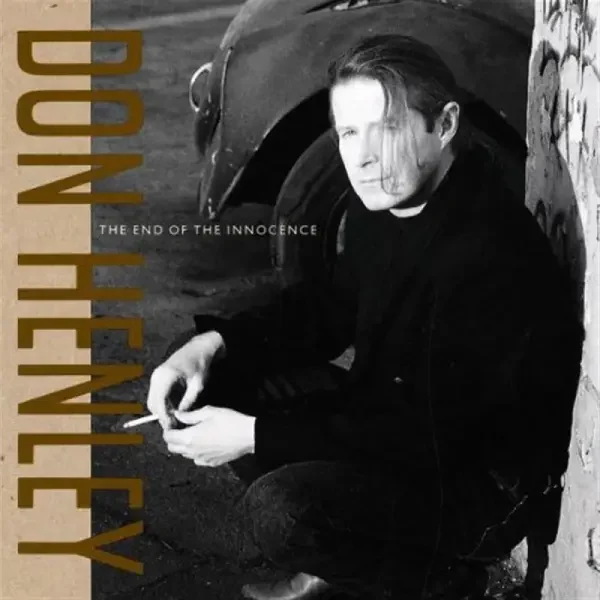Don Henley
– The End of the Innocence
Don Henley doesn’t so much sing on The End of the Innocence as brood in perfect pitch. This is Henley as the weathered oracle—part cynic, part romantic, and all-too-aware of what American dreams look like after the shine fades. It’s a record haunted by Reagan-era disillusionment, and Henley wears his discontent like a well-fitted blazer: world-weary but unflinching.

The production is high-gloss ’80s—courtesy of producers like Danny Kortchmar, Bruce Hornsby, and even Mike Campbell—but there’s something warmer in its layers. The keyboards shimmer, yes, but it’s Henley’s voice—still capable of that burnished ache—that carries the weight. He sounds like he’s been reading too much Steinbeck and not sleeping enough. It’s pop music for adults who stopped believing in happy endings and started looking for something real.
Lyrically, Henley doesn’t dodge tough questions. He asks what happens when the empire ages, when love becomes obligation, when memory stings more than it soothes. The politics are quiet but firm. The personal stuff? Even harder. For a man who spent the ’70s painting desert highways and hotel rooms, here he trades sand for concrete, and the poison goes down slower. But it still burns.
Choice Tracks
The End of the Innocence
Co-written with Bruce Hornsby, this is the album’s weary spine. It plays like a lullaby for a generation that grew up watching promises curdle. Henley’s vocal is understated but piercing, and the melody floats with melancholy grace.
New York Minute
This one’s practically noir. With its piano-led drama and sweeping strings, it feels like Henley channeling Billy Joel through an Eagles filter, mourning the chaos of love and the cruelty of fate. It’s theatrical, sure—but never phony.
The Last Worthless Evening
Somewhere between late-night radio gold and wounded pickup line. Henley croons to the walking wounded, trying to convince them (and himself) that starting over is possible, even if nobody believes it.
The Heart of the Matter
Probably his most human moment on the album. It’s not about falling in love—it’s about trying to forgive when there’s nothing left to fix. The chorus hits like a bittersweet truth you didn’t want but needed. One of his finest vocal performances.
I Will Not Go Quietly
This is Henley shaking off the nostalgia for a second to rock out—harder guitars, snarling attitude, and even Axl Rose on backing vocals. It’s Henley saying he’s not ready to fade gently into adulthood, even if he already has a mortgage and a conscience.

